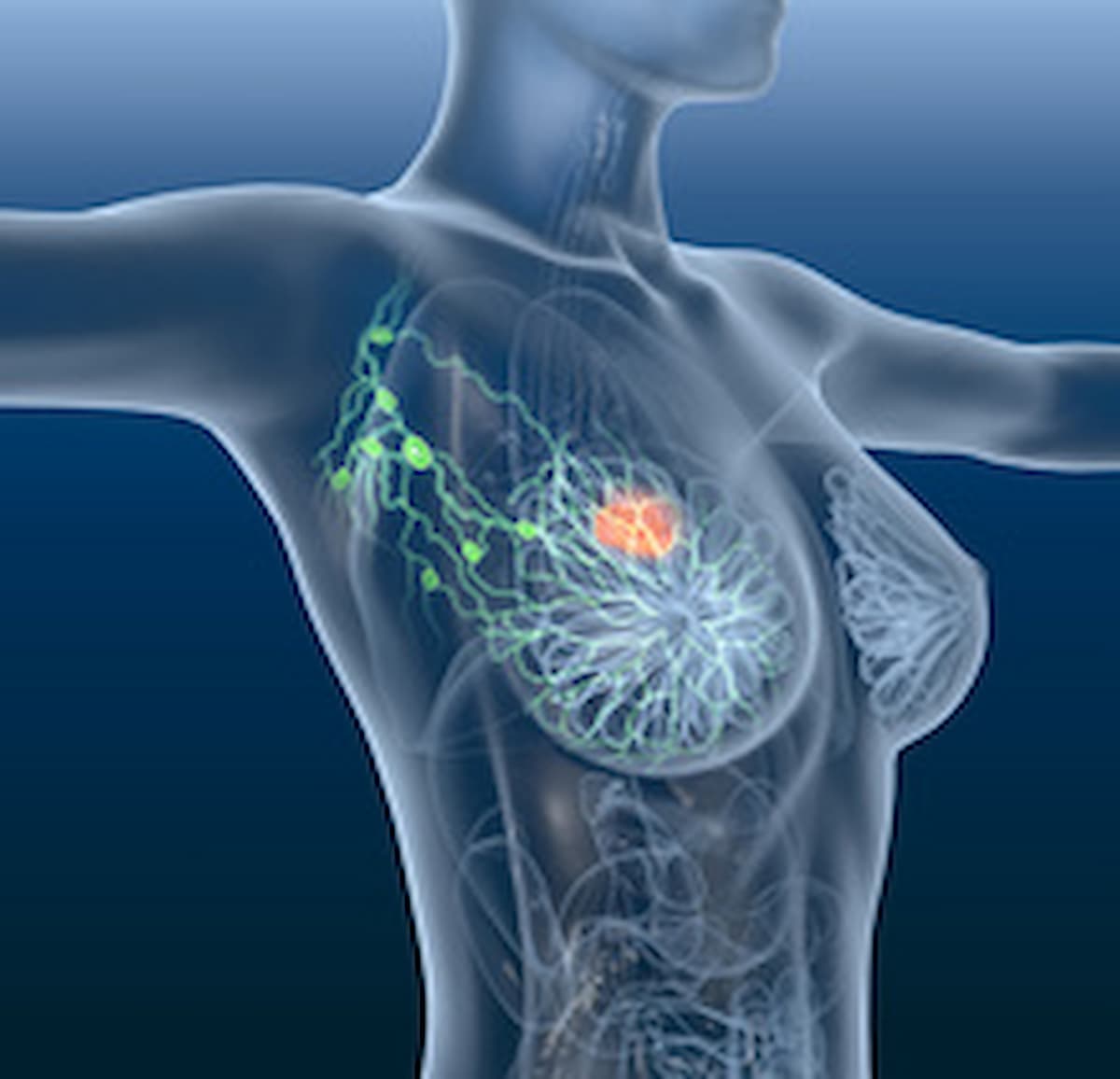Gedatolisib Combos Improve PFS in Advanced PIK3CA Wild-Type Breast Cancer
Results from the phase 3 VIKTORIA-1 trial showed gedatolisib plus fulvestrant with or without palbociclib improved progression-free survival.
Results from the phase 3 VIKTORIA-1 trial showed gedatolisib plus fulvestrant with or without palbociclib improved progression-free survival.

Gedatolisib plus fulvestrant (Faslodex) with or without palbociclib (Ibrance) demonstrated improved efficacy vs fulvestrant alone in adult patients with hormone receptor (HR)–positive, HER2-negative, PIK3CA wild-type, locally advanced or metastatic breast cancer following progression caused by treatment on, or after, a CDK4/6 inhibitor and an aromatase inhibitor, according to a press release from Celcuity.1
Results came from the PIK3CA wild-type disease cohort of the phase 3 VIKTORIA-1 trial (NCT05501886).
Treatment with gedatolisib plus fulvestrant with palbociclib demonstrated a median progression-free survival (PFS) of 9.3 months (95% CI, 7.2-16.6) compared with 2.0 months (95% CI, 1.8-2.3) with fulvestrant alone, correlating with a 76% reduction in the risk of disease progression or death with the triplet therapy (HR, 0.24; 95% CI, 0.17-0.35; P <.0001).2
Treatment with gedatolisib plus fulvestrant without palbociclib led to a median PFS of 7.4 months (95% CI, 5.5-9.9), which was a 67% reduction in the risk of disease progression or death with the doublet therapy vs fulvestrant alone (HR, 0.33; 95% CI, 0.24-0.48; P <.0001).
A favorable overall survival trend was also observed with the triplet and the doublet, although the data were immature at the time of reporting.
As noted in the press release, the hazard ratios for both the triplet and the doublet were more favorable than those that have been reported in any other phase 3 trial for patients with HR–positive, HER2-negative advanced breast cancer. The incremental median PFS improvements for both the triplet and doublet vs fulvestrant alone were higher than any that have been reported by any phase 3 trial for patients with HR–positive, HER2-negative advanced breast cancer in at least their second line of therapy.
Furthermore, gedatolisib was the first PI3K/AKT/mTOR pathway inhibitor to demonstrate positive results in a phase 3 trial in this population of patients with PIK3CA wild-type disease who experienced progression on or after treatment with a CDK4/6 inhibitor.
Complete data from the PIK3CA wild-type cohort of the trial will be shared at an upcoming medical conference this year; topline data for the VIKTORIA-1 PIK3CA mutation cohort is expected by the end of 2025.
Additionally, the developer intends to submit a new drug application for gedatolisib to the FDA in the fourth quarter of 2025.
“Patients with HR–positive, HER2-negative, PIK3CA wild-type advanced breast cancer whose disease has progressed while on, or after, treatment with a CDK4/6 inhibitor typically derive limited benefit from subsequent endocrine-based therapy. The topline data for both gedatolisib regimens from VIKTORIA-1 are potentially practice-changing,” said Sara Hurvitz, MD, senior vice president of the Clinical Research Division at Fred Hutchinson Cancer Center, professor and head of the Division of Hematology and Oncology at the University of Washington’s Department of Medicine, and co-principal investigator for the trial, in the press release.1 “To my knowledge, we have not seen phase 3 results in patients with HR–positive, HER2-negative advanced breast cancer before where there was a quadrupling of the likelihood of survival without disease progression relative to the study control.”
This cohort of VIKTORIA-1 enrolled patients with HR–positive, HER2-negative, PIK3CA wild-type, advanced breast cancer who progressed during or after a CDK4/6 inhibitor and an aromatase inhibitor. Patients were pre- or post-menopausal women and men who received 2 or fewer prior lines of endocrine therapy for advanced breast cancer; had no prior inhibitors targeting mTOR, PI3K, or AKT; had no prior chemotherapy for advanced breast cancer; and had measurable disease per RECIST v1.1.
Those eligible were randomly assigned, in a 1:1:1 ratio, to receive the triplet (n = 131), the doublet (n = 130), or fulvestrant alone (n = 131). In all cohorts, the agents were administered at the same doses: gedatolisib was given intravenously at 180 mg once weekly following a 3-weeks-on, 1-week-off schedule (days 1, 8, and 15); palbociclib was given at 125 mg daily following a 21-days-on, 7-days-off schedule; and fulvestrant was given at 500 mg on days 1 and 15 of cycle 1, then every 4 weeks. Patients were permitted to crossover to receive the triplet or the doublet following progressive disease.
The trial’s primary end points were PFS per blinded independent central review with the triplet and the doublet vs fulvestrant monotherapy.
Regarding safety, the triplet and the doublet both showed improved safety profiles vs what was seen in the phase 1b portion of the VIKTORIA-1 trial for patients with advanced breast cancer; lower rates of hyperglycemia and stomatitis were observed.
The rates of treatment discontinuation due to a treatment-related adverse event were lower for the triplet and doublet compared with what was observed in any phase 3 trial for currently approved combinations in HR–positive, HER2-negative advanced breast cancer; the rates were also lower than what was seen in arm D of the phase 1b trial.
References
- Celcuity announces clinically meaningful improvement in both progression-free survival (“PFS”) primary endpoints from PIK3CA wild-type cohort of phase 3 VIKTORIA-1 trial. News release. Celcuity Inc. July 28, 2025. Accessed July 29, 2025. https://tinyurl.com/mr3k3sfa
- Celcuity phase 3 VIKTORIA-1 topline results investor call. Celcuity Inc. July 28, 2025. Accessed July 29, 2025. https://tinyurl.com/2u4frp8z